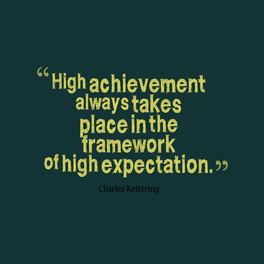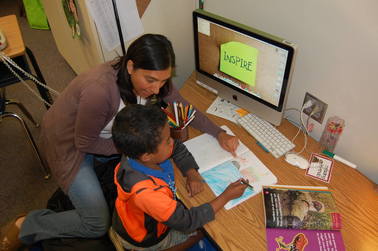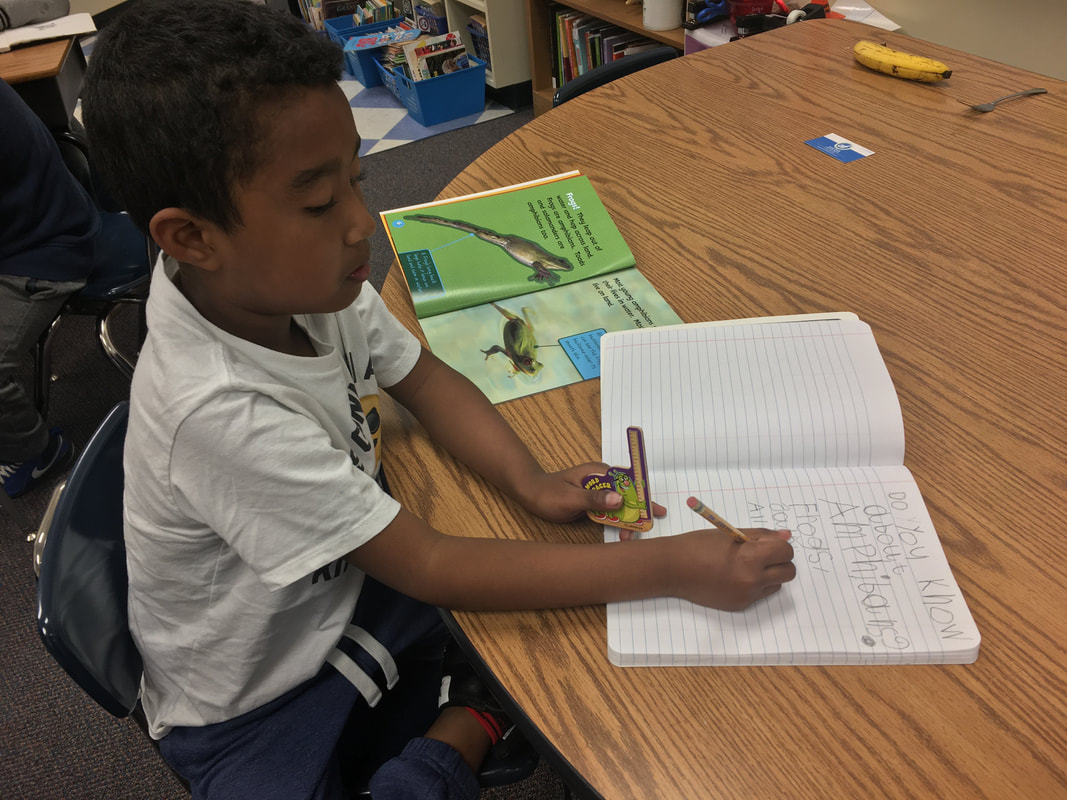|
Just the other day, a Kindergarten English Learner said to me: "Mrs. Francis, I did it! I didn't think I could do it, but I did it!". Carly was excited and proud to have completed her writing assignment. Her comment and her smile of accomplishment stirred up in me so many doubts and questions about my pedagogy and about what my students are feeling and thinking of themselves. Amazingly, a 6-year-old student made me rethink and examine my framework for effective teaching. Th book that immediately came to mind while examining my practices was No More Low Expectations for English Learners by Julia Nora and Jana Echevarria. This 75-page book is loaded with research supported framework for effective teaching that sets high expectations for TEACHERS. In this book you'll find an array of practices that though are well-intentioned, can be what prevents our students from performing to their highest potential...NOT because of students, but because these practices are deficit-based teaching practices. Based on Nora and Echevarria, we deny English learners access when we...
So, the question we need to ask ourselves as educators is: Are WE striving for students' high achievement or are WE trapping them in a cycle of limiting potential?!? The answer to the question is based on the expectation we have for our students regardless of their background and/or language proficiency. Research shows that students from disadvantaged backgrounds are the ones at risk for being subjected to teachers' low expectations. Therefore, our low expectation is their path into the cycle of limiting potential. Believe me when I tell you it is not easy growing up with so many disadvantages that are for sure to lead you to an unsuccessful life. Just last week I participated in an activity called The Privilege Walk...and it hit me to the core! This activity made me think about all the disadvantages I experienced during my childhood. Many, if not all, were disadvantages out of my control. Many were opportunities that were denied to me as a student. This activity made me think about the students I serve and the possibilities to either make it or not. But it doesn't have to be like that! It is very easy to fall into the low expectation trap! As soon as we learn our student is an English learner, from a low-income background, students of color, parents who are unengaged or with limited formal education, etc...our expectation bar is immediately lowered. WHY?!? These students who are already at disadvantage need/should get more structured opportunities. Again, it is easy to recognize the disadvantages and what they cannot do. However, we need to start recognizing what they CAN do and build on their strengths. Perhaps these points provided by Nora and Echevarria can help:
“If You Are Working On Something That You Really Care About, You Don’t Have To Be Pushed.
What is your vision for your students? What is your expectation for your students? Are they rising to their highest potential or are they stuck in the cycle of limited potential? Great questions to guide your practice! Thank you for reading!
0 Comments
Your comment will be posted after it is approved.
Leave a Reply. |
Categories
All
Archives
May 2024
|




